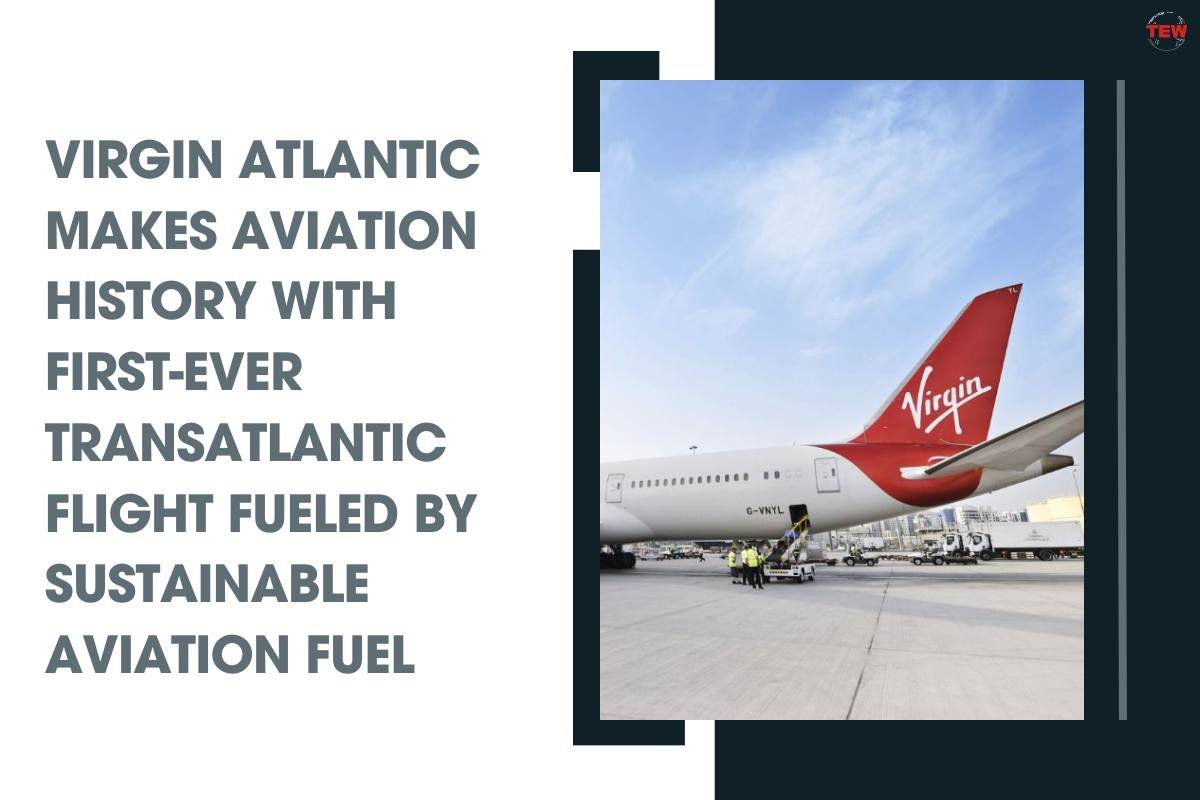In a groundbreaking moment for the aviation industry, Virgin Atlantic successfully completed a historic transatlantic flight from London to New York without relying on fossil fuels. The unprecedented test flight, conducted on a commercial plane, utilized sustainable aviation fuel (SAF) exclusively, marking a significant step towards reducing carbon emissions in the aviation sector.
The sustainable aviation fuel used in this flight was derived from waste fats and plant sugars
Virgin Atlantic’s milestone flight on Tuesday marked the first time a commercial aircraft undertook a transatlantic journey powered solely by SAF. The sustainable fuel used in this flight was derived from waste fats and plant sugars, emitting approximately 70% less carbon than traditional petroleum-based jet fuel, as detailed in a press release. The aircraft landed at John F. Kennedy International Airport on Tuesday afternoon, concluding the landmark journey.
SAF represents a crucial component in the aviation industry’s transition to zero carbon emissions, particularly in the current decade, according to Andrew Chen, Principal for Aviation Decarbonization at the Rocky Mountain Institute, a clean-energy think tank. Despite its potential, SAF currently accounts for a mere 0.1% of airlines’ overall fuel consumption.
While Virgin Atlantic’s achievement is groundbreaking, it is important to note that this was a one-time demonstration. The airline has no plans to regularly offer all-SAF flights. Standard jet engines are not designed to run exclusively on sustainable fuel, and the limited availability and high cost make it impractical for widespread use on all flights.
Serves as a bridge to zero-carbon flight
Chen acknowledges the significance of the milestone, stating, “It’s a really important flight to highlight the progress that’s being made, the need for more SAF, and the critical role they can play in decarbonizing aviation.” This achievement serves as a bridge to zero-carbon flight, emphasizing the industry’s ongoing efforts to explore alternative, sustainable options.
Sustainable aviation fuels encompass a diverse range of biofuels derived from sources such as corn, animal fat, algae, municipal waste, and sewage. Federal guidelines stipulate that these fuels must emit at least 50% less carbon than traditional petroleum-based jet fuel. However, it’s crucial to recognize that while SAF reduces emissions, it alone cannot achieve zero carbon emissions for the airline industry.
To achieve the goal of zero carbon emissions, the industry must invest in developing new technologies that allow aircraft to run on electric batteries, liquid hydrogen, or other yet-to-be-proven fuel sources. Andrew Chen emphasizes that this transition will require extensive research, and it will take decades for airlines to replace existing fleets with planes capable of utilizing these innovative fuels.
In the interim, SAF serves as a practical means to reduce carbon emissions from aviation. As Chen notes, “There’s no getting around having to burn a fuel, so SAF is our way to displace fossil fuels” and initiate a tangible reduction in planes’ carbon footprint. Virgin Atlantic’s pioneering flight highlights the progress made in sustainable aviation and underscores the need for continued innovation to propel the industry towards a more environmentally friendly future.





